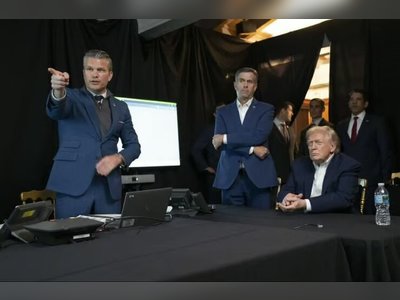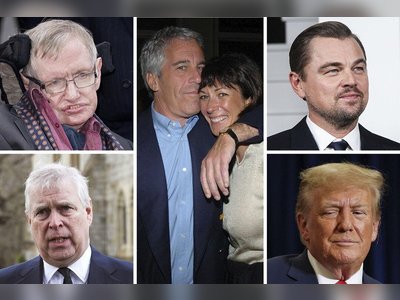
Leading AI Companies Change Position, Advocate for Reduced Regulations Under New U.S. Administration
Tech giants retract their previous endorsement of AI regulation, pursuing wider data access and requesting exemptions from copyright limitations in light of heightened global competition.
In May 2023, executives from prominent artificial intelligence firms such as OpenAI, Google's DeepMind, and Anthropic urged U.S. legislators to establish federal regulations for the swiftly evolving AI industry.
Their push for oversight aimed at reducing existential threats posed by sophisticated AI systems, with suggestions including algorithmic audits, content labeling, and collaborative risk data sharing.
During that time, the U.S. administration worked with AI developers to implement voluntary commitments to ensure the safety and equity of AI technologies.
In October 2023, a presidential executive order codified these principles, mandating federal agencies to assess the potential implications of AI systems on privacy, workers' rights, and civil liberties.
After a transition in administration, the perspective on AI policy underwent a substantial shift.
In the inaugural week of the new presidential term, an executive order was enacted to revoke the former administration's directives and encourage policies that enhance American AI capabilities.
The new directive instructed the development of a national strategy to remove regulatory obstacles within one hundred and eighty days.
In the weeks following the policy shift, AI companies submitted documents and proposals to influence the new framework.
One fifteen-page submission from OpenAI urged the federal government to prevent individual states from establishing their own AI regulations.
It also cited the Chinese AI firm DeepSeek, which developed a competitive model using only a fraction of the computational resources typically required by U.S. firms, to advocate for broader access to federal data for training models.
OpenAI, Google, and Meta have additionally lobbied for increased rights to utilize copyrighted material—including books, films, and artworks—for training AI systems.
All three companies are currently facing ongoing legal challenges regarding copyright infringement.
They have requested executive clarification or legislative measures to confirm that using publicly available information for model training is considered fair use.
A prominent U.S. venture capital firm also submitted a policy document urging the avoidance of new AI-specific regulations, contending that existing consumer safety and civil rights laws suffice.
The firm called for punitive measures against harmful entities while opposing mandates that would impose regulatory obligations based on speculative risks.
This policy shift aligns with rising concerns among AI developers regarding intensifying global competition.
Under the previous administration, leading U.S. firms believed their considerable investments and computational advantages would secure their position, particularly with restrictions placed on the export of advanced AI chips to countries like China.
Recent developments, including the emergence of advanced models from smaller foreign competitors, have challenged this assumption.
Some U.S. AI companies have reevaluated the extent of their technological lead and are now pursuing expedited access to resources and reduced regulatory limitations.
This reevaluation has resulted in a distinct change in industry lobbying, with leading AI companies prioritizing competitive advantage over previous calls for cautious and collaborative oversight.
Their push for oversight aimed at reducing existential threats posed by sophisticated AI systems, with suggestions including algorithmic audits, content labeling, and collaborative risk data sharing.
During that time, the U.S. administration worked with AI developers to implement voluntary commitments to ensure the safety and equity of AI technologies.
In October 2023, a presidential executive order codified these principles, mandating federal agencies to assess the potential implications of AI systems on privacy, workers' rights, and civil liberties.
After a transition in administration, the perspective on AI policy underwent a substantial shift.
In the inaugural week of the new presidential term, an executive order was enacted to revoke the former administration's directives and encourage policies that enhance American AI capabilities.
The new directive instructed the development of a national strategy to remove regulatory obstacles within one hundred and eighty days.
In the weeks following the policy shift, AI companies submitted documents and proposals to influence the new framework.
One fifteen-page submission from OpenAI urged the federal government to prevent individual states from establishing their own AI regulations.
It also cited the Chinese AI firm DeepSeek, which developed a competitive model using only a fraction of the computational resources typically required by U.S. firms, to advocate for broader access to federal data for training models.
OpenAI, Google, and Meta have additionally lobbied for increased rights to utilize copyrighted material—including books, films, and artworks—for training AI systems.
All three companies are currently facing ongoing legal challenges regarding copyright infringement.
They have requested executive clarification or legislative measures to confirm that using publicly available information for model training is considered fair use.
A prominent U.S. venture capital firm also submitted a policy document urging the avoidance of new AI-specific regulations, contending that existing consumer safety and civil rights laws suffice.
The firm called for punitive measures against harmful entities while opposing mandates that would impose regulatory obligations based on speculative risks.
This policy shift aligns with rising concerns among AI developers regarding intensifying global competition.
Under the previous administration, leading U.S. firms believed their considerable investments and computational advantages would secure their position, particularly with restrictions placed on the export of advanced AI chips to countries like China.
Recent developments, including the emergence of advanced models from smaller foreign competitors, have challenged this assumption.
Some U.S. AI companies have reevaluated the extent of their technological lead and are now pursuing expedited access to resources and reduced regulatory limitations.
This reevaluation has resulted in a distinct change in industry lobbying, with leading AI companies prioritizing competitive advantage over previous calls for cautious and collaborative oversight.











